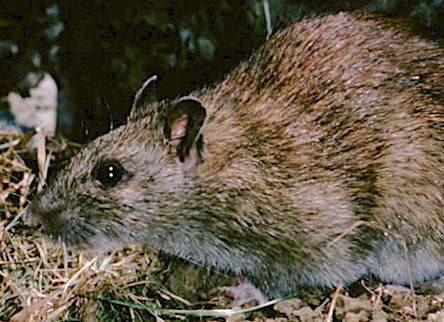
CLEMSON, S.C. — Rats! But if you have them, there’s more than one way to dispatch the disease-ridden wretches.
South Carolina pesticide applicators will increase their arsenal against rats and other rodents in an online training offered by the Clemson University Extension Service and Department of Pesticide Regulation (DPR) on Aug. 20.
“We’re tackling the issue of how to control rodents responsibly for human safety without impacting the environment, including the predators who feed on them,” said Eric Benson, an emeritus professor and Clemson Extension specialist whose expertise is Integrated Pest Management (IPM) for urban pests.
An outgrowth of ideas first applied to insects and diseases of crops nationwide in the 1970s, IPM now has spread to all facets of pest control, especially where chemical pesticides are used.
The IPM strategy doesn’t use merely a single method but the best combination of methods both to control pests and to minimize harm to the environment.
The latter has become an issue in Kiawah Island, S.C., where some of the native population of local bobcats have died and tested positive for chemicals used to kill rats — likely from having eaten the rodents themselves.
The online training — “Rodent Control: IPM Options” — offers research-based options that are economically viable for pest management companies and their clients and provide effective rodent control while minimizing the risk to non-target animals.
The online workshop will be held Thursday, Aug. 20 from 8 to 10 a.m. Cost is $50. The course includes two recertification credits for certified pesticide applicators as well as a certificate of completion.
“Rodents are ubiquitous. This isn’t an issue just in one place or just on the coast but wherever people live,” Benson said. “Because Kiawah Island is tracking its bobcat population it has its own biology department and was able to identify active ingredients used in some rat baits. Most towns would never know.”
“Our main target is roof rats. Many other rodents like squirrels and chipmunks are part of the natural environment and an important part of predator food chains,” he said. “We want rodents in the environment for that reason. We just don’t want rodents coming into areas where we live and eat.”
In addition to Benson, presenters include:
- Donny Oswalt, owner of The Bug Doctor in Alabama, a Clemson Ph.D. graduate with more than 40 years of experience in the pest control business.
- Wildlife biologist Jim Jordan, who keeps track of the Kiawah Island bobcats.
- Ryan Okey, Assistant Director for the Department of Pesticide Regulation, a state regulatory agency housed at Clemson and charged with licensing pesticides and the professionals who apply them.
“Pesticides are an important tool to protect agriculture, the environment, and human health, but without an integrated pest management approach, we can have negative results like what has happened with the bobcats on Kiawah Island,” said Steve Cole, director of Regulatory Services at Clemson. “This educational program will help pest management professionals incorporate other tools to effectively control rodents without having a negative impact on the ecosystem.”
END
Get in touch and we will connect you with the author or another expert.
Or email us at news@clemson.edu

